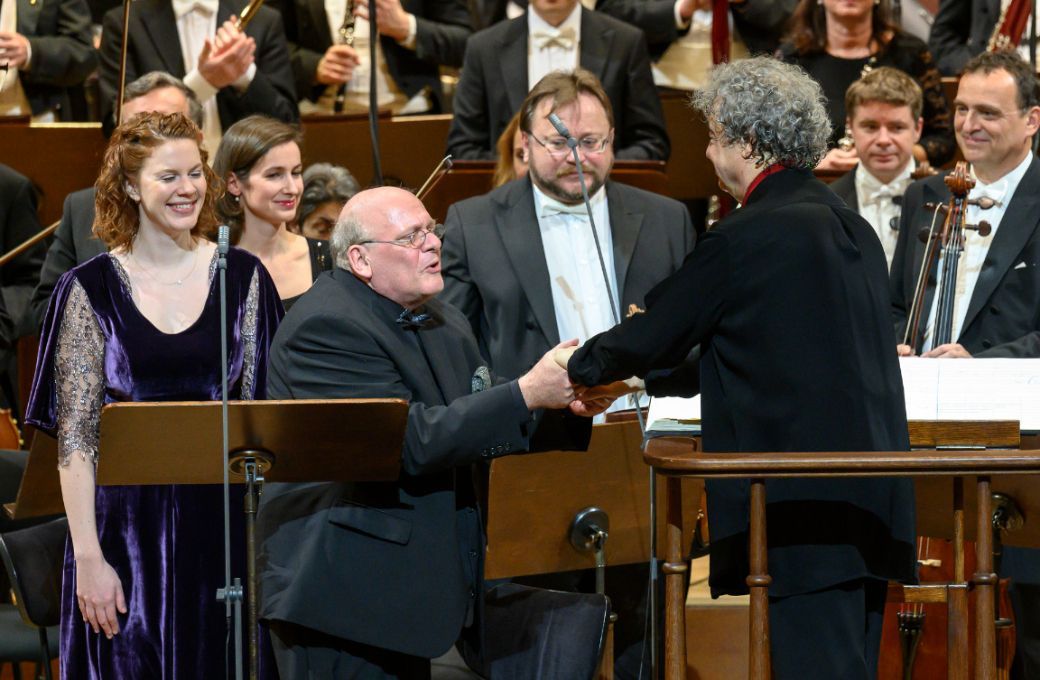It was worth the wait. Postponed by the pandemic shutdown, Detlev Glanert’s Prague Symphony finally received its world premiere by the Czech Philharmonic this week. The title is a bit misleading, conjuring images of the fabled city of golden spires and enchanting legends. Instead Glanert explores darker terrain, using fragments of Kafka’s letters, poetry and diaries to create an interior duologue depicting the pain of being human. With a score that closely mirrors the libretto, it’s an unsettling but thrilling journey to the dawn of the modern era, bold and unpredictable, like a wild animal let loose.

The title also belies the structure, which is closer to an oratorio. Twelve tightly linked songs – or more accurately, short texts compiled and recast as fierce vocals – are sung by a bass-baritone and mezzo-soprano, with orchestral backing that ranges from violent outbursts to quiet contemplation. It’s fair to say that the principal requirement for the singers is a high degree of angst, which Christian Immler and Catriona Morison delivered with fiery flair. Morison’s voice is bright for a mezzo, but dripped with drama in sections like Stand strong, with its “iron needles” of rain. Immler put bite into both his sung and spoken lines, adding an occasional flourish like a subtle echo effect in Humanity. Both singers also did heroic work imbuing disjointed, impressionistic lyrics with powerful emotional expression.
The piece opens with a great clatter and tumult, rising to an apocalyptic pitch at times and dropping to an atonal murmur at others. Snapping percussion, stentorian brass and heaving strings provide the momentum, along with kaleidoscopic changes in tone, texture and intensity. Glanert is a master of orchestration, and highly inventive in creating atmospherics. For Dreams he conjured an ethereal, off-color background, and the foray into Hades was marked by an opening blast of tubas that gave way to a whirl of strings and woodwinds punctuated by avalanches of brass. Semyon Bychkov was sensational on the podium, giving the music spatial dimensions and an electric edge.
It helped that Bychkov is an admirer of Glanert’s music and longtime friend of the composer. Bychkov is also an enthusiastic fan of Johan Dalene, a 22-year-old Swedish-Norwegian phenom who opened the evening as the soloist on Sibelius’ Violin Concerto in D minor. Dalene arrived onstage like he just got off a skateboard, in an open-neck shirt and skinny pants, flashing a gap-toothed grin. Then he played his Stradivarius like he was born with it in his hands, flying through the difficult solo runs in a dazzling blur. If some of the notes were lost and the dynamics uneven, these were flaws easily overlooked in the glare of such raw talent. And Bychkov provided an ideal showcase with lush, muted backing.
Dalene might have seemed no more than a precocious student had he not returned for an encore of the Gavotte en Rondeau from Bach’s Partita no. 3 in E major. Given a slower piece and room to improvise, he quickly demonstrated that he not only has superb technical skills but his own musical language. The phrasing, pacing and ornamentation were entirely original, a fresh take on an old warhorse. To see that level of poise and sophistication in someone so young was almost startling. Small wonder that Dalene was named Gramophone’s 2022 Young Artist of the Year.
The sparse turnout for the concert was a reminder that contemporary music is a tough sell in Prague, where tastes run conservative. The Czech Philharmonic has taken a brave step in commissioning new work and providing a first-class platform for it. Praguers may not be quite ready for the Prague Symphony, but in combination with a brilliant new talent, it made for one of the most exciting evenings of the season.


